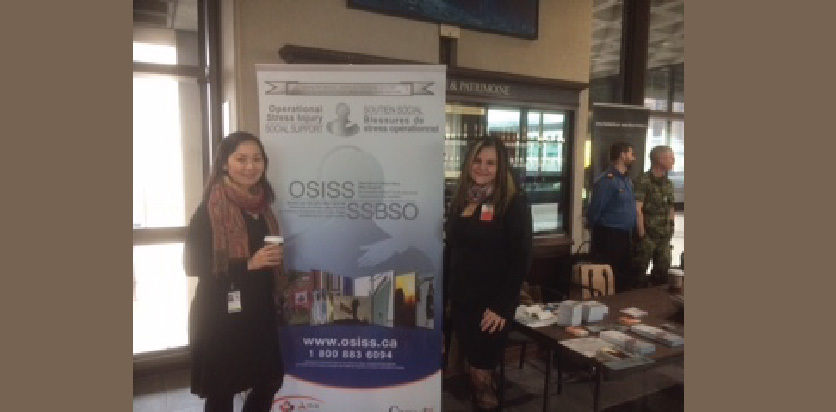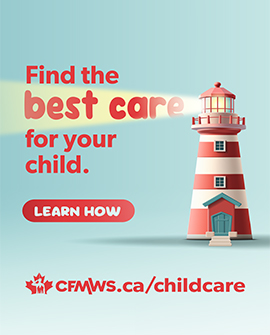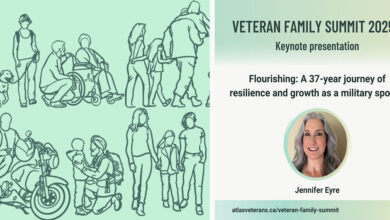Programs & Services
Military Families helping Military Families
Launched 14 years ago because of a conversation between peers waiting at a clinic, Operational Stress Injury Social Support (OSISS) is an organization that helps military members with OSIs and their families through peer support. Established in 2001, the program has helped more than 10,000 people over the years.
A partnership program between Veterans Affairs and the Department of National Defence, OSISS’s vision is “To be an exemplary model of standardized peer support to Canadian Forces (CF) personnel, Veterans, and their families.”
“We want to remove the stigma associated with mental illness and the injury as well we just want to make sure the people going through a difficult time do get support and do get help and assistance from the right resources,” said Vanessa Pok Shin, family peer support co-ordinator.
OSISS offers one-on-one social support for listening in a non-judgmental and confidential environment. Realizing “it’s very hard and takes a lot of courage to seek help.”
Currently serving members, veterans or their families can reach out to OSISS initially through phone contact but are encouraged to meet with Peer Support Coordinators in person.
Since families play a large part in the recovery process for an individual with an OSI, OSISS offers substantial programming for families. Besides one-on-one peer support, the organization offers support groups for families that create a safe environment for people with shared experiences to meet and exchange coping tips and strategies.
The group also has strong ties with local MFRCs and their Family Liaison Officers (FLOs).
Collaborating with Military Family Resource Centres (MFRC), Canadian Forces Moral and Welfare Services (CFMWS) and the Family Liason Officers (FLO), OSISS offers families an all-expense paid retreat weekend. The weekend includes workshops and sometimes yoga classes to help individuals focus on their health.
“The retreat is a way for family members to take time and reflect, pause and just relax and just get away from their daily lives. It’s a way for family members to come together and connect but also a time to be by themselves,” said Pok Shin.
Peer Support Coordinators (PSC) are typically former military members or family members who have first-hand experience of living with mental health injuries and Family Peer Support Coordinators are family members living or have lived with a loved-one suffering from an OSI. This allows individuals seeking help the chance to open up in a non-judgmental environment.
“Also knowing there’s someone here for them that’s been through the same thing, you can see the light at the end of the tunnel, so that gives them hope and motivation to keep going and not give up,” explained Pok Shin.
Instead of meeting in offices, PSCs and their peers can meet in coffee shops or even go for a walk, realizing that many times they, especially family members, don’t have the opportunity to go out as much.
“Knowing you have someone to talk to, and it’s confidential and not being judge, knowing you don’t have to do it by yourself, is huge. A lot of people are isolated,” noted Pok Shin.
Pok Shin says that success is measured differently for each individual case, but the biggest indicator is when people can start moving on with a more normal life, create better relationships and not need to walk on egg shells anymore.
“For me it’s when someone is telling me ‘I’m starting to go out with my husband, and he’s okay with being in a crowd, for me that is a success,” said Pok Shin.
To become a volunteer or learn more about the program visit their website.











